Martin Cosby's Blog, page 10
February 19, 2013
Women in Horror; my Top 10
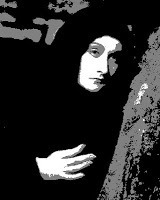
February is Women in Horror Month. (OK, I admit I didn't realise this until I read James Everington's excellent blog and decided to purloin he idea from him.) So, before it's too late, I thought I would re-read some of my favourite short stories by women; although I must say I've never really made any distinction between male or female writers. So I had to check my facts.
I have listed 10 of them, and added a few brief reviews.
I had no problem deciding my number one, as it's also one of my all-time favourite stories; Three Miles Up by Elizabeth Jane Howard.
Moving up to number two is Don't Get Lost by Tanith Lee.
Straight in at three is a story I have only recently discovered, Dual Control by Elizabeth Walter.
Number four is A Curious Experience by Nora Lofts.
Number five is Charley by A.L. Barker.
Number six is The Token by May Sinclair.
Number seven is a bit controversial ... Never Talk To Strangers by Alex White.
At eight is a modern choice, The Rain by Rosalie Parker.
Nine is Roaring Tower by Stella Gibbons.
Last but not least is a bit of fun; The Quest for Blank Claveringi by Patricia Highsmith is number 10.
(Apart from number one, there's no rhyme nor reason for the order, I must admit.)
So to some reviews.
Don't Get Lost by Tanith Lee
I have always felt the title of a story is so important. It's a bit like the research done into Formula One racing cars: if it doesn't look good, it won't be competitive, despite the technology beneath its skin. If the title ain't right, it won't work! (Although there could be another blog post there, great stories with duff titles ... if there are any!) I digress. Don't Get Lost is a great title, and says it all about the story.
Sally is being taken home after a night out by her unsavoury boyfriend, who rather unfortunately suggests they take a short cut through a housing estate. Having missed the last bus, and despite her misgivings, she acquiesces ("all the girls were jealous. She had to be careful.") They soon become hopelessly lost, the estate consisting of identical houses. The reader is swept along on their emotional journey, from being merely annoyed that all the streets look the same, and that they seem to be going round in circles, to the realisation that there are no street signs and no people or cars; and that something is seriously wrong. "Something else though ... he hadn't wanted to think of it, perhaps. Those vans. All the same. And no cars. No, he was sure. No cars at all. But the vans had come in to deliver something, and then, what? Forgotten how to leave?"
The urban landscape is sharp as a splinter, a growing sense of dread making it a compelling read. Once the protagonists notice the similarities in their situation to that of flies trapped in a spider's web, the reader senses it may be all downhill from there. The final sentence more than justifies this, providing a shocking climax!
This is one of those tales that I have read repeatedly. It is perfectly formed. Not a word is wasted, no item of punctuation is out of place. It would be in my top ten short stories by anyone.
Dual Control by Elizabeth Walter
As I mentioned above, this is a recent discovery of mine, and has made me think about the structure of my writing. It consists only of dialogue, the events opening up to the reader through the interaction between an unhappily married couple.
Freda and Eric are on their way to the Brady's place for a dinner party. As they drive along an isolated road, there is an incident. Eric would seem to have knocked over a woman trying to thumb a lift, her car having broken down. At first the reader is led to believe it was just a glancing blow. Eric refuses to stop, and as they argue over who was at fault, it selfishly occurs to them how awkward it would be if the woman was on her way to their party; and, sure enough, she is there, albeit somewhat dishevelled. As the story progresses, it becomes clear that the incident had been more serious than they had admitted to themselves. "You may not be drunk but anyone would think you are, the way you're driving. No wonder you hit that girl. And it wasn't just a shove. I think you've killed her."
The plot itself could be called predictable, but the way it is written is the great attraction for me. Freda and Eric have a precarious relationship, and the interest lies as much in their interaction, and of how this incident both pushes them apart and draws them together simultaneously. The ending is thoroughly satisfying in more than one way.
(Another great title, don't you think!)
The Rain, by Rosalie Parker
This is a fairly conventional affair, but it's a favourite of mine because of how beautifully written and evocative it is. This is another story I have gone back to and re-read a number of times.
Geraldine is having a break from "November-grey London, to cast off the routine of work." She has rented a cottage in a picturesque Yorkshire village. She is alone because her married boyfriend is unable to join her; and she is about to find out both that there really is a north-south divide, and that the weather is often worse in the north. Indeed, the constant rain reminds me of the church bells ringing relentlessly in Aickman's Ringing the Changes.
The Rain is a kind of a morality tale, highlighting the prejudice that still exists between country and city life. Geraldine is uneasy, feeling she is being judged by the villagers, particularly Mrs Williams, the "woman who cleaned the cottage." As she lets slip details about her less than blameless private life, it becomes clear that her behaviour may very well be unremarkable in the big smoke, but in such a small and remote village everything is scrutinised. A visit to the local pub is the turning point of the story, where she drinks too much and "engages in some rather outrageous flirting." Unable to recall exactly what she had revealed, her perception of the village changes, and it is only a matter of time before she gets her comeuppance. But is it deserved?
The Rain is an atmospheric, well-paced tale which is an ideal opener for The Old Knowledge,
Parker's collection of short stories.
Published on February 19, 2013 19:09
February 17, 2013
Shadwell Stair
I have just been reminded by that excellent author Chris Hill that I love poetry. So here is the first of what may become a series of blog posts featuring my favourite poems ... with some kind of strange, weird or supernatural connection. I would love to hear about poems that are special to you.
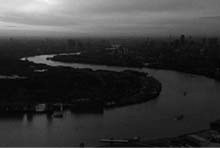
This is Shadwell Stair, by Wilfred Owen.
I am the ghost of Shadwell Stair.
Along the wharves by the water-house,
And through the cavernous slaughter-house,
I am the shadow that walks there.
Yet I have flesh both firm and cool,
And eyes tumultuous as the gems
Of moons and lamps in the full Thames
When dusk sails wavering down the pool.
Shuddering the purple street-arc burns
Where I watch always; from the banks
Dolorously the shipping clanks
And after me a strange tide turns.
I walk till the stars of London wane
And dawn creeps up the Shadwell Stair.
But when the crowing syrens blare
I with another ghost am lain.

This is Shadwell Stair, by Wilfred Owen.
I am the ghost of Shadwell Stair.
Along the wharves by the water-house,
And through the cavernous slaughter-house,
I am the shadow that walks there.
Yet I have flesh both firm and cool,
And eyes tumultuous as the gems
Of moons and lamps in the full Thames
When dusk sails wavering down the pool.
Shuddering the purple street-arc burns
Where I watch always; from the banks
Dolorously the shipping clanks
And after me a strange tide turns.
I walk till the stars of London wane
And dawn creeps up the Shadwell Stair.
But when the crowing syrens blare
I with another ghost am lain.
Published on February 17, 2013 03:38
February 10, 2013
In the Penal Colony
Don't you just love a brutal landscape?
Today we caught the ferry across to Cockatoo Island, which operated as a convict penal settlement between 1839 and 1869. It is now a heritage site open to the public. Being an isolated island, it would have been easy to secure, with the convicts always 'under the eye of security'. Apparently they were often subject to harsh living and working conditions, and looking around the bleakly inhospitable place now, it's easy to imagine what might have happened.
Quarrying, general labouring and construction were carried out here by the convicts, and they built all their own living quarters on the island themselves. Which would I guess have provided some motivation!
From 1851, it was used as a shipyard, Navy ships being built here for two world wars as well as the Korean and Vietnam conflicts. There is a fascinating juxtaposition of beautiful scenery (the harbour bridge can be seen across the water as a backdrop), harsh concrete bunkers from the wars, huge empty warehouses and rusty cranes from the shipbuilding years, and stunning Federation architecture. The whole place feels post-apocalyptic, and is so big that it's easy to find yourself all alone between the towering buildings and the long-unused industrial grain silos. It was compelling to look through the isolation cells, basically caves with barred windows set into the foot of cliffs. I was not expecting such a striking landscape, and I could not resist taking some pictures. I certainly felt inspired to use this place in a story. Now, maybe I need a plot ...
 Harsh landscape: graffiti on some concrete grain silos.
Harsh landscape: graffiti on some concrete grain silos.
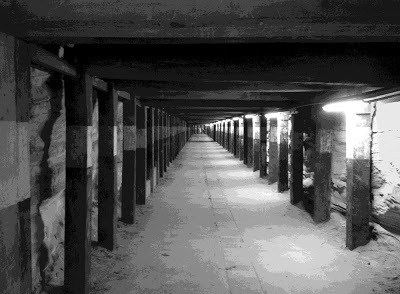 The island has a number of tunnels through the cliffs, once used for transporting heavy items on the rails you can just make out in my photo. Needless to say, these are atmospheric places! The kids loved running along them, though.
The island has a number of tunnels through the cliffs, once used for transporting heavy items on the rails you can just make out in my photo. Needless to say, these are atmospheric places! The kids loved running along them, though.
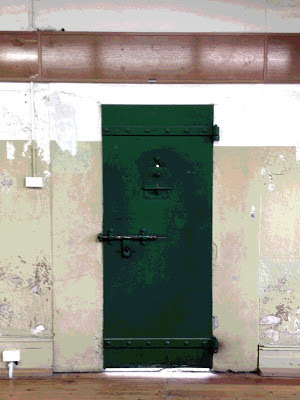 A heavily secured door in an empty, crumbling warehouse, leading ... nowhere. Locked from the inside, but why?
A heavily secured door in an empty, crumbling warehouse, leading ... nowhere. Locked from the inside, but why?
 The place is a maze, and there's no one around ...
The place is a maze, and there's no one around ...
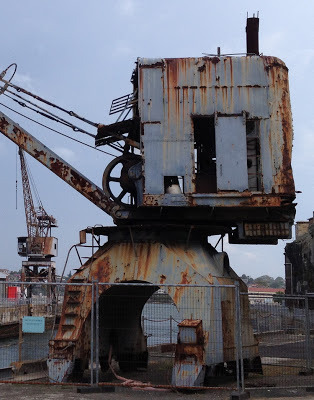 Ghosts from the old shipyard
Ghosts from the old shipyard
 The rusting hulks of disused warehouses are ready to swallow up the unwary!
The rusting hulks of disused warehouses are ready to swallow up the unwary!
Today we caught the ferry across to Cockatoo Island, which operated as a convict penal settlement between 1839 and 1869. It is now a heritage site open to the public. Being an isolated island, it would have been easy to secure, with the convicts always 'under the eye of security'. Apparently they were often subject to harsh living and working conditions, and looking around the bleakly inhospitable place now, it's easy to imagine what might have happened.
Quarrying, general labouring and construction were carried out here by the convicts, and they built all their own living quarters on the island themselves. Which would I guess have provided some motivation!
From 1851, it was used as a shipyard, Navy ships being built here for two world wars as well as the Korean and Vietnam conflicts. There is a fascinating juxtaposition of beautiful scenery (the harbour bridge can be seen across the water as a backdrop), harsh concrete bunkers from the wars, huge empty warehouses and rusty cranes from the shipbuilding years, and stunning Federation architecture. The whole place feels post-apocalyptic, and is so big that it's easy to find yourself all alone between the towering buildings and the long-unused industrial grain silos. It was compelling to look through the isolation cells, basically caves with barred windows set into the foot of cliffs. I was not expecting such a striking landscape, and I could not resist taking some pictures. I certainly felt inspired to use this place in a story. Now, maybe I need a plot ...
 Harsh landscape: graffiti on some concrete grain silos.
Harsh landscape: graffiti on some concrete grain silos.
 The island has a number of tunnels through the cliffs, once used for transporting heavy items on the rails you can just make out in my photo. Needless to say, these are atmospheric places! The kids loved running along them, though.
The island has a number of tunnels through the cliffs, once used for transporting heavy items on the rails you can just make out in my photo. Needless to say, these are atmospheric places! The kids loved running along them, though. A heavily secured door in an empty, crumbling warehouse, leading ... nowhere. Locked from the inside, but why?
A heavily secured door in an empty, crumbling warehouse, leading ... nowhere. Locked from the inside, but why?
 The place is a maze, and there's no one around ...
The place is a maze, and there's no one around ...
 Ghosts from the old shipyard
Ghosts from the old shipyard
 The rusting hulks of disused warehouses are ready to swallow up the unwary!
The rusting hulks of disused warehouses are ready to swallow up the unwary!
Published on February 10, 2013 03:40
February 3, 2013
Darker Times and a Liebster list
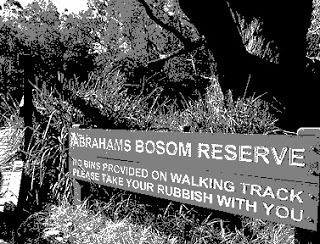
I found out this morning that my short story 'Abraham's Bosom' will be included in the next Darker Times Anthology (Volume 3). I'm very pleased it will see the light of day; it was another one of my early stories which I have since re-written. I think I have shortened it by about a third, and it is much improved! Many thanks to Jessica Grace Coleman at Darker Times.

I also found out I have been nominated for the Liebster Award by Paul D. Dail. Thanks Paul, it's a great honour! Here are the requirements:
• I have to list 11 random facts about me, and answer the 11 questions asked by the person who nominated me.
• I am to nominate 11 other people, and come up with 11 new questions. I can’t nominate the person who nominated me (for obvious reasons.)
• I paste the award picture on my blog.
Here are 11 (very boring) facts about me, then:
1. I asked permission to leave the family dining table after each meal until the age of 27.
2. I produced artwork for Thomas the Tank Engine comics when I was an illustrator.
3. I try to run every day if I can. Can't miss my Sunday long run!
4. I love motorcycles. I used to own a Kawasaki GPz1100 and rode everywhere flat out. That was before speed cameras, mind you ... and before my marriage.
5. I ate the same kind of cereal for breakfast for around 20 years.
6. I used to play squash fairly seriously.
7. I loved school dinners.
8. I hate shopping.
9. I can't swim very well (more of an issue here in Aus than back in the UK.)
10. My father and grandfather owned MuDu watches, which I still have. I occasionally buy one if one comes up on ebay ... so I have a small collection.
11. New Order is my favourite band (but I have many favourites.)
These are Paul's questions for me:
1. What was one of the first books to have a profound effect on you (interpret as you will)?
1984 taught me that books could be bitter-sweet.
2. More peanut butter or more jelly on your sandwich?
Peanut butter (has to be quality stuff though!)
3. What’s one of the scariest things you’ve done?
Took some flying lessons.
4. What’s one of the stupidest things you’ve done?
Found out that 110mph can be attained in 3rd gear on a particular dual-carriageway if a GPz1100 is ridden to work every day.
5. What’s your first choice: beer, wine, hard liquor, soda, other?
Beer but rarely. (Mainly green tea.)
6. For #5, your favorite brand/style/cocktail?
Cooper's ale. (Mildura for the tea.)
7. If you could live anywhere for a year (money and/or reality are no object), where would it be?
Right here. Sydney's pretty good!
8. Who is one person who has been a big inspiration to you?
Haile Gebrselassie.
9. If you were given the choice between losing your sight or your hearing, which would it be?
Pardon?
10. Speaking of hearing, who is one of your favorite bands or musicians?
The Smiths (see my own facts above.)
11. Have you ever done karaoke?
No. My reserved nature would never allow me to even try.
My 11 nominees:
(I'm including a number of people I know little about, in order to find out more about them. I'm very sorry if you’ve already been nominated, or if you are irritated by me nominating you.)
1. James Everington
2. Chris Hill
3. Dionne Lister
4. Gary Dolman
5. Gregory James
6. Melissa Pearl
7. Bev Spicer
8. Clare Adams
9. Lisa Corelli
10. Caffeine & Chapters
11. Riley Banks
Finally, here are the questions for my nominees:
1. Do you write your first drafts by hand?
2. Do you follow more than 10 blogs?
3. Do you play a musical instrument?
4. Given the choice, which opera would you attend?
5. e-book or paper book?
6. Do you use an electric blanket?
7. Do you write in cafes?
8. Is there a film that has influenced you greatly?
9. Do you keep a diary?
10. Which foodstuff do you like the least?
11. Do you listen to music while you work? If so, what?
Well, that's it then. I look forward to finding out your responses!
Published on February 03, 2013 01:26
January 20, 2013
The Source of the Lea
I've neglected this blogging thing for a couple of weeks. We have been away for a while, the kids are on holiday from school, and ... I've been busy re-writing work I had foolishly thought was finished. The trouble is, every time I read over something I've written, the urge to change something is irresistible. I assume most writers have this tendency. I find it's more acute when I encounter something that influences me in some way by another writer (which is basically all the time); and it makes me want to reflect something differently in my writing.
A couple of books in particular have had that effect on me recently. First, I finished Stories for Nighttime and Some for the Day by Ben Loory. His spare, economic writing style distils meaning, deftly creating atmosphere. It gave me the confidence that I could use fewer words to convey my own message. But also that it helps to put them in the right order!
Second, I read Hawthorn and Child by Keith Ridgway. I have mentioned my doubts about calling this a novel. Really it is a collection of short stories, tenuously linked (nevertheless I like this concept.) In some ways I found it an uncomfortable read. However I could not put the book down, being caught up in the breathless rush of it. It is certainly uncompromising. It follows the method of showing things, not telling them, which is my kind of writing. It fascinated me and made me think: could my stories be a little more confronting? Cue for some more re-writing ...
It must be said that I have not been writing for long. I have yet to truly settle on my own writing style.
Right now I am making adjustments to a short story called The Source of the Lea. I have changed the structure of the tale, adding sequences at the start and the finish. Here is its new beginning. What do you think?
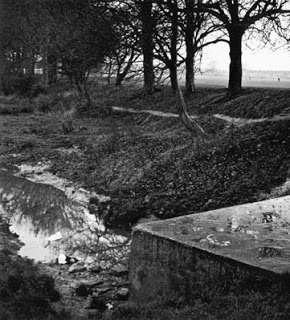
The Source of the Lea
"Tell me, Fowler, did you turn out to be the marrying type?"
I recoiled slightly from this blunt inquiry, and his bloodshot gaze. I desperately tried to place him.
"Well yes, as a matter of fact ..."
"Children too?"
"Two, actually: one of each."
He nodded, mopping his shiny brow. His restless gaze flitted about the poorly lit room.
The school reunion had been a disappointment from the start. I was at a loose end, having made the long drive up from the west country earlier in the week. I was staying on the outskirts of the town where I grew up. The very outskirts, in fact, in the very cheapest kind of hotel, on a main road near the motorway. I had my rather lowly standing in the firm to thank for that.
So I found myself looking for things to do, not wanting to spend all my evenings alone in my room. A copy of the local rag had been slipped under my door, and I flicked through it, wondering at how little things had changed in so many years. Near the back was a surprisingly prominent advertisement announcing a reunion for my year at high school.
Normally I would not be interested, but I thought it would at least get me out of my hotel room for a few hours.
He really was rather on edge. It seemed for a while he was quite unaware of my presence, so intent was he on scanning the room; but as I turned, about to make my escape, he placed his hand on my arm and looked me in the eye.
"By the way, old man, when you came in, did you notice a brown-haired girl push past you in the doorway; attractive type?"
I certainly would have noticed an attractive girl, especially in the gloomy scout hall. A makeshift bar had been set up in one corner, and music played from speakers either side of a dusty area cleared for dancing. Nobody danced. The small crowd milled about by the bar. It seemed everyone had kept in touch but me.
I had been surprised not to recognise anyone straight off, and yet to have been recognised several times myself. I even handed out a few business cards, along with empty promises. Perhaps I have not changed much since my younger days.
"No, I'm afraid I can't say I did."
His eyes clouded over and he looked downcast. Staring at his feet.
"Thought so. It's always the same."
I was about to ask what he meant, when I realised who he was. Kevin Pocock bore little resemblance to the boy I remembered from school. We had sat next to each other in English during our final term. He was a gangly, unremarkable boy who seemed academically able but lazy. We got on well enough, but he had not made a lasting impression upon me. Looking at him now, however, I could not help feeling sorry for him. His willowy frame had become stooped, his once thick hair now receding, grey and wiry. His complexion was grey too, apart from his nose, which was red, covered in the tiny broken blood vessels of a heavy drinker. He was dressed in a rather haphazard manner.
And yet, I could still see an odd flash of Pocock as he was. The difference was striking.
Draining his drink, he almost dropped the glass as he placed it on the shelf behind him, alongside several others. He looked to me like he needed a lift home. With nothing better to do, I offered.
"Not yet, Fowler. I might have a few more of these yet." He smiled and winked, but I could tell his heart wasn't in it. I didn't offer to get him another. "Besides, you wouldn't want to hear my story. You're the lucky one, with your wife and children. Go home to them, don't waste your time with the likes of me."
At that moment the music got louder, and the first tentative dancers took to the floor. Conversation became difficult, and we decided to leave. Taking his frail arm, I led him out.
The cold night air made me shiver after the over-heated hall, and Pocock's feet almost slipped out from under him on the icy steps. I steadied him and we stumbled to my car.
"Cheers," he said as I felt for my keys.
He lived in one of the estates that had sprung up around the town, and it wasn't very far, as he had assured me. We approached his house through a confusing maze of back streets, and he directed me to pull up opposite a small car park where the remains of a burnt-out car squatted.
"Tradesman's entry, old boy!" Laughing hoarsely, he struggled with an old wooden gate, damp and slimy. We trudged up his back garden path, and he slid open some glass doors. It occurred to me that they had not been locked.
"Make yourself at home, Fowler." He cleared a space on the sofa, moving piles of newspapers, magazines, and old takeaway containers.
It did not surprise me that the house was both untidy and none too clean. What I wasn't prepared for was the extent of the damp. My nostrils prickled. I could see mould on the walls, which were nearly running with water. The carpets were both threadbare and moist. Clearly the upkeep of the place was too much for him, and glimpses of the kitchen told me things were no better through there.
I could hear him putting the kettle on, fumbling around clumsily like a much older man. Unable to refuse the offer of tea, I shuddered at the grimy mug he proffered, wondering how I could avoid drinking it. He lit the gas fire and collapsed into an old armchair opposite me.
"So, what exactly is this story of yours you said I wouldn't want to hear about?" I said it partly in jest, but his hurt expression told me how serious he was.
"It won't mean much to you, I'm sure." His eyes took on a faraway look in the light from the gas fire, and there was something in his tone which suddenly interested me despite my misgivings.
"You remember, Fowler, all that dodgy business about the river when we were in our last year at school?" He started to cough, and it was some time before he could continue. I did remember it all very well, of course. It was a big story at the time, and part of local folklore. "Well, it's tied up with that, in a way. Although I don't really know if there's anything behind the whole thing at all."
By now I was intrigued, and I encouraged him to start at the beginning.
Do you want to find out what happens next? Watch this space!
A couple of books in particular have had that effect on me recently. First, I finished Stories for Nighttime and Some for the Day by Ben Loory. His spare, economic writing style distils meaning, deftly creating atmosphere. It gave me the confidence that I could use fewer words to convey my own message. But also that it helps to put them in the right order!
Second, I read Hawthorn and Child by Keith Ridgway. I have mentioned my doubts about calling this a novel. Really it is a collection of short stories, tenuously linked (nevertheless I like this concept.) In some ways I found it an uncomfortable read. However I could not put the book down, being caught up in the breathless rush of it. It is certainly uncompromising. It follows the method of showing things, not telling them, which is my kind of writing. It fascinated me and made me think: could my stories be a little more confronting? Cue for some more re-writing ...
It must be said that I have not been writing for long. I have yet to truly settle on my own writing style.
Right now I am making adjustments to a short story called The Source of the Lea. I have changed the structure of the tale, adding sequences at the start and the finish. Here is its new beginning. What do you think?

The Source of the Lea
"Tell me, Fowler, did you turn out to be the marrying type?"
I recoiled slightly from this blunt inquiry, and his bloodshot gaze. I desperately tried to place him.
"Well yes, as a matter of fact ..."
"Children too?"
"Two, actually: one of each."
He nodded, mopping his shiny brow. His restless gaze flitted about the poorly lit room.
The school reunion had been a disappointment from the start. I was at a loose end, having made the long drive up from the west country earlier in the week. I was staying on the outskirts of the town where I grew up. The very outskirts, in fact, in the very cheapest kind of hotel, on a main road near the motorway. I had my rather lowly standing in the firm to thank for that.
So I found myself looking for things to do, not wanting to spend all my evenings alone in my room. A copy of the local rag had been slipped under my door, and I flicked through it, wondering at how little things had changed in so many years. Near the back was a surprisingly prominent advertisement announcing a reunion for my year at high school.
Normally I would not be interested, but I thought it would at least get me out of my hotel room for a few hours.
He really was rather on edge. It seemed for a while he was quite unaware of my presence, so intent was he on scanning the room; but as I turned, about to make my escape, he placed his hand on my arm and looked me in the eye.
"By the way, old man, when you came in, did you notice a brown-haired girl push past you in the doorway; attractive type?"
I certainly would have noticed an attractive girl, especially in the gloomy scout hall. A makeshift bar had been set up in one corner, and music played from speakers either side of a dusty area cleared for dancing. Nobody danced. The small crowd milled about by the bar. It seemed everyone had kept in touch but me.
I had been surprised not to recognise anyone straight off, and yet to have been recognised several times myself. I even handed out a few business cards, along with empty promises. Perhaps I have not changed much since my younger days.
"No, I'm afraid I can't say I did."
His eyes clouded over and he looked downcast. Staring at his feet.
"Thought so. It's always the same."
I was about to ask what he meant, when I realised who he was. Kevin Pocock bore little resemblance to the boy I remembered from school. We had sat next to each other in English during our final term. He was a gangly, unremarkable boy who seemed academically able but lazy. We got on well enough, but he had not made a lasting impression upon me. Looking at him now, however, I could not help feeling sorry for him. His willowy frame had become stooped, his once thick hair now receding, grey and wiry. His complexion was grey too, apart from his nose, which was red, covered in the tiny broken blood vessels of a heavy drinker. He was dressed in a rather haphazard manner.
And yet, I could still see an odd flash of Pocock as he was. The difference was striking.
Draining his drink, he almost dropped the glass as he placed it on the shelf behind him, alongside several others. He looked to me like he needed a lift home. With nothing better to do, I offered.
"Not yet, Fowler. I might have a few more of these yet." He smiled and winked, but I could tell his heart wasn't in it. I didn't offer to get him another. "Besides, you wouldn't want to hear my story. You're the lucky one, with your wife and children. Go home to them, don't waste your time with the likes of me."
At that moment the music got louder, and the first tentative dancers took to the floor. Conversation became difficult, and we decided to leave. Taking his frail arm, I led him out.
The cold night air made me shiver after the over-heated hall, and Pocock's feet almost slipped out from under him on the icy steps. I steadied him and we stumbled to my car.
"Cheers," he said as I felt for my keys.
He lived in one of the estates that had sprung up around the town, and it wasn't very far, as he had assured me. We approached his house through a confusing maze of back streets, and he directed me to pull up opposite a small car park where the remains of a burnt-out car squatted.
"Tradesman's entry, old boy!" Laughing hoarsely, he struggled with an old wooden gate, damp and slimy. We trudged up his back garden path, and he slid open some glass doors. It occurred to me that they had not been locked.
"Make yourself at home, Fowler." He cleared a space on the sofa, moving piles of newspapers, magazines, and old takeaway containers.
It did not surprise me that the house was both untidy and none too clean. What I wasn't prepared for was the extent of the damp. My nostrils prickled. I could see mould on the walls, which were nearly running with water. The carpets were both threadbare and moist. Clearly the upkeep of the place was too much for him, and glimpses of the kitchen told me things were no better through there.
I could hear him putting the kettle on, fumbling around clumsily like a much older man. Unable to refuse the offer of tea, I shuddered at the grimy mug he proffered, wondering how I could avoid drinking it. He lit the gas fire and collapsed into an old armchair opposite me.
"So, what exactly is this story of yours you said I wouldn't want to hear about?" I said it partly in jest, but his hurt expression told me how serious he was.
"It won't mean much to you, I'm sure." His eyes took on a faraway look in the light from the gas fire, and there was something in his tone which suddenly interested me despite my misgivings.
"You remember, Fowler, all that dodgy business about the river when we were in our last year at school?" He started to cough, and it was some time before he could continue. I did remember it all very well, of course. It was a big story at the time, and part of local folklore. "Well, it's tied up with that, in a way. Although I don't really know if there's anything behind the whole thing at all."
By now I was intrigued, and I encouraged him to start at the beginning.
Do you want to find out what happens next? Watch this space!
Published on January 20, 2013 03:28
January 2, 2013
My short stories of 2012
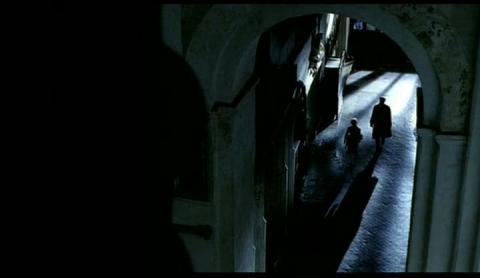
I know this is what the world has been waiting for ... so, as threatened, here is my pick of the short stories new to me during 2012. There were so many great examples from so many great writers, and really I am spoilt for choice. However when I cast my mind back, these ones stand out, for various reasons.
The Man in the Grey Bedroom by Reggie Oliver
This was my first taste of this author's work, being as it is the opener in his collection The Masques of Satan. I was immediately taken by his writing style, feeling at home with his distinctively dry, rather aloof delivery. It is a very atmospheric tale, and despite poor Jack Protheroe's demise never being in doubt, his journey still fascinates. This is a rounded, satisfying read in the traditional sense, reminding me somewhat of The Fully Conducted Tour by Robert Aickman. I have since read everything I can from Reggie Oliver, and I have enjoyed all his output. He is a very consistent writer, with very few wrong notes (in The Masques of Satan I can only think of The End of History as being less than successful). If I have a criticism of his work – more of an observation really – it would be that his stories are all a bit 'samey'. With some collections, I can happily read them right through in one go, but I have to dip into his on and off; perhaps in this case due to the recurring theme of the stage and acting in so many of his tales, something of which I do not have an affinity.
The Shouting by L.T.C. Rolt
I had always wanted to read Sleep No More and finally managed to do so. Anticipating something special, I wasn't disappointed. Of course I understand all about his relationship with Aickman and Elizabeth Jane Howard, and the rumour that Aickman started to write his stories in competition with Rolt. Reggie Oliver put it succinctly in his introduction to the new Tartarus edition of Intrusions:
In 1948, under the auspices of the Richard Marsh Agency, Rolt published a volume of ghost stories called Sleep No More. It is likely that Aickman began to write his 'strange stories' partly to compete with Rolt.
It is generally considered that Rolt's collection is a fine one, but that it consisted of conventional ghost stories which broke no new ground. After reading this enthralling volume for the first time, and knowing Aickman's output so well, I might beg to differ. I can see some aspects of these tales which must surely have been quite influential. Certainly they are more evolutionary than revolutionary, but there is a lot of weirdness going on, and some fascinatingly unresolved endings. I just loved all these stories, but the one that stays in my mind the most is The Shouting, mainly because it is so unconventional. Edward's phobia of woods is creepy, and the juxtaposition of the innocent children and the strange 'shouting' could perhaps have come from Aickman's mind. Oh and the concluding sentence is great too.
Off the Tracks by Steve Duffy
Night Comes On is a great collection. Every story is compelling. But I had not quite finished it early last year, and just before Christmas I realised I hadn't yet read Off the Tracks, the last one. This was one of those stories that manages to hit a nerve. Duffy's evocation of the railway brought back memories of mine from when I would travel into London St Pancras most weekends with my father, back in the black-and -white early 1970s. We would indeed stop alongside damp, bleak, blackened cuttings on the outskirts of the city for no apparent reason:
A grim, solitary world, too, it is, where no one ever goes, bar the odd gang of navvies laying tracks or fixing signals.
I found myself transported back to those days, sitting in the old sealed-off compartment trains with velour seats, and those stiff slide-down windows with the warnings next to the emergency cords. I also remember seeing grim-looking doors set into those cuttings we would stop beside, and wondering what they were there for, never seeing anyone enter or leave. Once you have read Duffy's thoughts on what happens behind such doors, you might want to catch the bus next time.
When the Walls Bend by James Everington
I really enjoy strange stories with a mundane setting, and this is a great example, from the excellent collection The Other Room. Everington is adept at creating tense atmospherics in ordinary situations, particularly in The Shelter and First Time Buyers, and this tale is just as good. I connected immediately with the hapless protagonist; and the 'landlord' Dom made my skin crawl, recalling perfectly Chris Ryan's character Mike in The Young Ones. Or is it just my age? Anyway, the combination of the ordinary and the supernatural meld perfectly, and the story whisks you along ... to the perfect conclusion. This is a story I feel I should have written. But would it have been as good? No way!
The Knock at the Cellar Door by Paul Finch
This is a compelling, powerful story, the ideal opener for a collection. Though thoroughly conventional, it is very well written, and the kind of tale which could easily be made into a screenplay for TV (or a radio play). It has a very strong opening sequence, and the tension is wound up and sustained expertly, with village inhabitants being not what they seem, and a growing sense of impending doom. Love it! The idea of the door opening into the mountainside (I won't say more) is satisfyingly creepy. Yes, the story is one long cliche, but it is one that has been proven to work well; and it sent a delicious shiver down my spine nonetheless.
Mannequins in Aspects of Terror by Mark Samuels
Speaking of shivers down my spine, I must admit that this story succeeded there too. This is a delightfully quirky tale, set in a modern city landscape where terrible things exist alongside workers going about their everyday business. A junior architect develops an obsession with an apparently deserted office block visible from his office window. When an 'art installation' is opened in the building, by Eleazor Golmi, an architect he admires, he just has to go and experience it. What he discovers is more than unnerving, and a couple of sequences in this story are genuinely creepy even for the seasoned strange story reader. I have re-read this story a number of times, and I can see myself doing so again. Essential reading.
Mortmain by John Metcalfe
Of course Mortmain is well known as a classic ghost story, but I had not read any of Metcalfe's work until last year (apart from Brenner's Boy, which is great but ubiquitous!) I was fascinated by Nightmare Jack and Other Stories, as I had not realised quite how enigmatic and complex his tales would be. I was taken with their modern feel, and how strange they are, not quite like conventional ghost stories. Mortmain is like a dream, or a nightmare. The recurring appearances of Humphrey Child's boat (no, not the Child from Ridgway's Hawthorn and Child ...), and the various preturnatural moths, create a malevolent atmosphere quite at odds with the peaceful setting of the idyllic setting of the Hampshire coast. From the start, it's clear that things will not turn out well. Elizabeth Jane Howard's masterful short story Five Miles Up has a similar feel, and not just due to the subject matter. Metcalfe's colourful life and tragic end only adds to the fascination of his stories. He wrote some interesting novels too, apparently, but I have never seen anything of them.
A Different Morecambe by Simon Kurt Unsworth
'I don't want to go to this Morecambe. I want to go to a different Morecambe.'
This story was the first I had read by this author, and it struck a chord immediately. A a parent I am very used to trips with young children, as is the premise behind this tale. The interaction between Huw and his son Lennie is well observed, creating a realistic feel. The idea of there being an alternative reality, but existing in such a prosaic location as Morecambe, seemingly obvious to the child but a mystery to the parent, is interesting and works well. A growing sense of unease is created both by the excellent prose used to describe the differences between the two Morecambes, and the changes happening to Lennie simultaneously. I won't go into more detail but suffice to say the ending is great and it is written beautifully.
There were many other stories I felt were excellent, and I will summarise them in another post.
Published on January 02, 2013 03:40
December 22, 2012
More books from 2012
I have looked back over the year once more, and this post completes my most memorable reads. Again, they are in no particular order. I have included one novella and one novel.
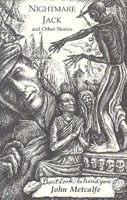 Nightmare Jack and Other Stories John Metcalfe
Nightmare Jack and Other Stories John Metcalfe
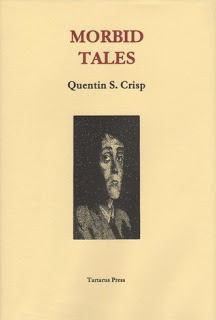 Morbid Tales Quentin S Crisp
Morbid Tales Quentin S Crisp
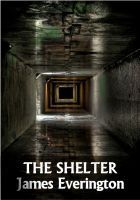 The Shelter James Everington
The Shelter James Everington
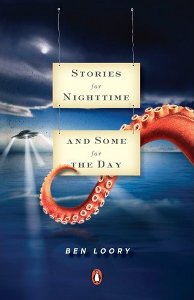 Stories for Nighttime and Some for the Day Ben Loory
Stories for Nighttime and Some for the Day Ben Loory
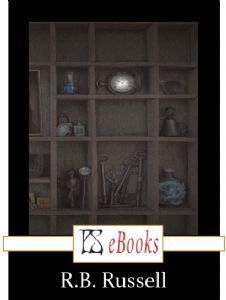 Literary Remains RB Russell
Literary Remains RB Russell
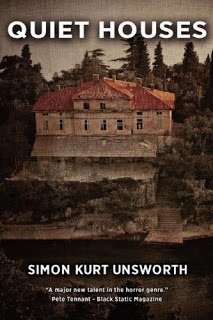 Quiet Houses Simon Kurt Unsworth
Quiet Houses Simon Kurt Unsworth
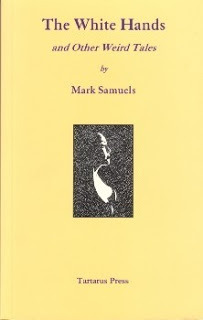 The White Hands and Other Weird Tales Mark Samuels
The White Hands and Other Weird Tales Mark Samuels
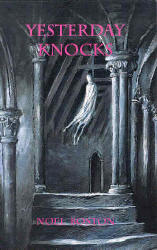 Yesterday Knocks Noel Boston
Yesterday Knocks Noel Boston
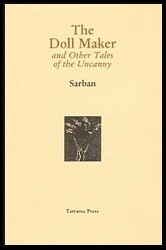 The Doll Maker and Other Tales of the Uncanny Sarban
The Doll Maker and Other Tales of the Uncanny Sarban
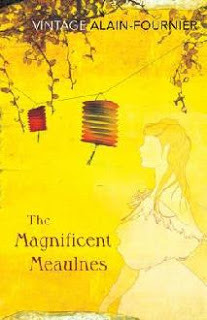 Le Grande Meaulnes Henri Alain-Fournier
Le Grande Meaulnes Henri Alain-Fournier
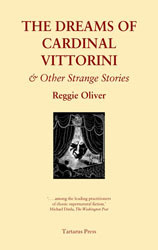 The Dreams of Cardinal Vittorini & Other Strange Stories Reggie Oliver
The Dreams of Cardinal Vittorini & Other Strange Stories Reggie Oliver
What can I say? I've read some great stuff this year. Keep tuned in to find out my favourite individual short stories of the year ... and even, soon, some reviews. Happy holidays!
 Nightmare Jack and Other Stories John Metcalfe
Nightmare Jack and Other Stories John Metcalfe Morbid Tales Quentin S Crisp
Morbid Tales Quentin S Crisp  The Shelter James Everington
The Shelter James Everington Stories for Nighttime and Some for the Day Ben Loory
Stories for Nighttime and Some for the Day Ben Loory  Literary Remains RB Russell
Literary Remains RB Russell Quiet Houses Simon Kurt Unsworth
Quiet Houses Simon Kurt Unsworth  The White Hands and Other Weird Tales Mark Samuels
The White Hands and Other Weird Tales Mark Samuels  Yesterday Knocks Noel Boston
Yesterday Knocks Noel Boston  The Doll Maker and Other Tales of the Uncanny Sarban
The Doll Maker and Other Tales of the Uncanny Sarban  Le Grande Meaulnes Henri Alain-Fournier
Le Grande Meaulnes Henri Alain-Fournier The Dreams of Cardinal Vittorini & Other Strange Stories Reggie Oliver
The Dreams of Cardinal Vittorini & Other Strange Stories Reggie OliverWhat can I say? I've read some great stuff this year. Keep tuned in to find out my favourite individual short stories of the year ... and even, soon, some reviews. Happy holidays!
Published on December 22, 2012 21:21
December 21, 2012
Books I have read in 2012
Here are some of the most memorable books I have read during 2012. Not necessarily books that were first published during the year, just ones that were new to me.
My year was dominated by short story collections, which is not surprising as it is my favourite form of fiction. Here are 12, in no particular order.
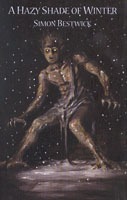 A Hazy Shade of Winter Simon Bestwick
A Hazy Shade of Winter Simon Bestwick
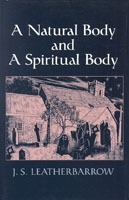 A Natural Body and a Spiritual Body JS Leatherbarrow
A Natural Body and a Spiritual Body JS Leatherbarrow
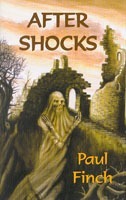 After Shocks Paul Finch
After Shocks Paul Finch
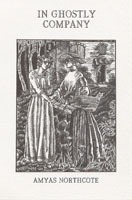 In Ghostly Company Amyas Northcote
In Ghostly Company Amyas Northcote
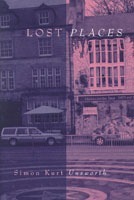 Lost Places Simon Kurt Unsworth
Lost Places Simon Kurt Unsworth
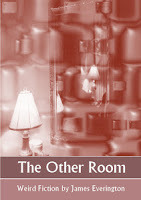 The Other Room James Everington
The Other Room James Everington
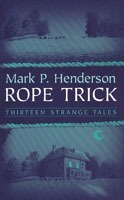 Rope Trick Mark P Henderson
Rope Trick Mark P Henderson
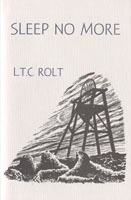 Sleep No More LTC Rolt
Sleep No More LTC Rolt
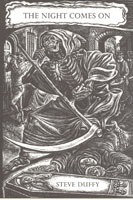 The Night Comes On Steve Duffy
The Night Comes On Steve Duffy
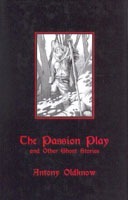 The Passion Play Anthony Oldknow
The Passion Play Anthony Oldknow
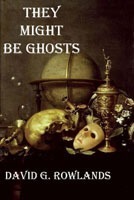 They Might Be Ghosts David G Rowlands
They Might Be Ghosts David G Rowlands
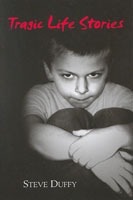 Tragic Life Stories Steve Duffy
Tragic Life Stories Steve Duffy
What a great selection there! Some older classics and some excellent newer collections. I will post more books I have read this year subsequently ... I didn't realise I'd read quite so much this year.
My year was dominated by short story collections, which is not surprising as it is my favourite form of fiction. Here are 12, in no particular order.
 A Hazy Shade of Winter Simon Bestwick
A Hazy Shade of Winter Simon Bestwick A Natural Body and a Spiritual Body JS Leatherbarrow
A Natural Body and a Spiritual Body JS Leatherbarrow  After Shocks Paul Finch
After Shocks Paul Finch  In Ghostly Company Amyas Northcote
In Ghostly Company Amyas Northcote  Lost Places Simon Kurt Unsworth
Lost Places Simon Kurt Unsworth  The Other Room James Everington
The Other Room James Everington Rope Trick Mark P Henderson
Rope Trick Mark P Henderson  Sleep No More LTC Rolt
Sleep No More LTC Rolt  The Night Comes On Steve Duffy
The Night Comes On Steve Duffy The Passion Play Anthony Oldknow
The Passion Play Anthony Oldknow  They Might Be Ghosts David G Rowlands
They Might Be Ghosts David G Rowlands  Tragic Life Stories Steve Duffy
Tragic Life Stories Steve DuffyWhat a great selection there! Some older classics and some excellent newer collections. I will post more books I have read this year subsequently ... I didn't realise I'd read quite so much this year.
Published on December 21, 2012 19:53
December 19, 2012
The strangest book I have read
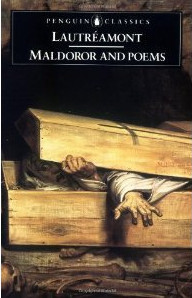
Being fairly well read for a 17-year-old, having tasted some science fiction, some horror stories, a fair few classics, and having grappled with existentialism with some success, I felt I was quite worldly-wise. Nothing could shock me; after all, I had read Never Talk to Strangers, and I was a Jesus and Mary Chain fan. What more could life teach me?
But then a friend lent me a copy of Maldoror by the mysterious Comte de Leatreamont (real name Isidore Ducasse). It is surely the strangest, nastiest, most shocking book imaginable. At the time, I read voraciously and with the intensity of a fairly pretentious youth, and this book left me scarred for life! To say it is unrelenting is an understatement; it is a litany of disturbed and disturbing images which leave the reader numb. I have experienced nothing since with a fraction of its power. It is incredible how it came to be published, especially in Paris in 1868, with the repression going on at that time (I believe there were issues about both its publication and distribution, but nonetheless they were resolved). I don't intend to write a synopsis or review of it, as so much has been written elsewhere, but I would recommend anyone with an interest in strange stories, literature in general, or indeed horror stories, to have a look at it. If only to have your own morals well and truly challenged.
I feel I should quote its opening sentence:
May it please heaven that the reader, emboldened and having for the first time being become as fierce as what he is reading, should, without being led astray, find his rugged and treacherous way across the desolate swamps of these sombre and poison-filled pages; for, unless he brings to his reading a rigorous logic and a tautness of mind equal at least to his wariness, the deadly emanations of this book will dissolve his soul as water does sugar.
You'd better believe it. Of course, part of the legend of this book is the mystery surrounding Isidore Ducasse. Almost nothing is known of him, apart from that he was born in Montevideo in 1846, the son of a French consular official, and that he died in Paris at the age of 24. There are some sketchy details about his education, and a tantalising interview with one M. Paul Lespes, in 1927, when he was 81; he had been at school with Ducasse, and he mentions that Ducasse had admired Edgar Allen Poe. A couple of bare descriptions of him exist, and but one photograph (below). He had become caught up in the Prussian seige of Paris, and apparently died of a fever, as was common at that time. He left no letters, no memoirs or diaries.
(An interesting aside is that Ducasse apparently said, just before his demise, that Maldoror was about evil, and that he was about to begin its sister volume, which would be about good. The idea being that the two would balance each other out.)
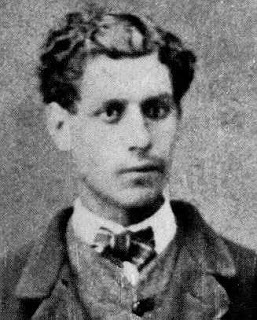
Maldoror was probably the first surrealist novel, and as such has influenced Verlaine, Gide, Breton, Dali ... it is challenging in a way that books cannot be any more. Despite its amoral bleakness, violence and sadism, it is also poetic, humorous, frightening and atmospheric. There is a strange sense of outrage at its own excesses, too, which I found confusing but fascinating. Certainly, as the protagonist himself says, a bitter fruit, but one worth trying. With an open mind.
Published on December 19, 2012 03:52
December 9, 2012
Existential angst

Of course, I went through a period of existentialism. A friend of mine had read Nausea by Jean-Paul Sartre, and recommended it to me. So, having just started at art college, aged 16, I gave it a go. It had such an effect upon me that it shaped my reading matter for many years, and indeed it still does. In a way I feel it stopped me from even attempting to write, as it is such a singular achievement which could surely never be emulated. I still occasionally read it, getting something different from it each time; but something just as relevant to me.
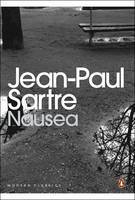
Upon reading the book as an older person, it became clear just how self-indulgent and self-absorbed the whole thing is: but then that just adds to its magnificence. Would anyone write such a book now? It is so trivial yet so ground-breaking. Has there ever been a more fascinating yet pathetic character than the Autodidact? Doomed from the start yet compellingly so. Everything is questioned, from the tiniest detail to the broadest of concepts, and it was all so terribly important to an art student. Are art students like that any more?
Of course I had to read more by Sartre, and so I bought a copy of The Age of Reason. This is a (fairly) conventional novel putting forward a complex theory of philosophy in a very accessible manner. I lost myself in and to this book. Mathieu, the protagonist, became an obsession to me, and I tried to live my life to the ideals put forward in Sartre's prose. This is at least slightly possible when one is still at college ... but the concepts of personal freedom become a little compromised once one has to acquire a holiday job!
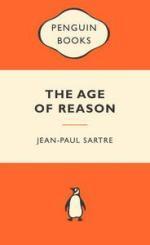
Part of a trilogy called, collectively, Roads to Freedom (it was great to tell people at college parties you were reading a trilogy) of great influence, it is the easiest to read. The other two, The Reprieve and Iron in the Soul are worthy books but harder work. The narrative structure in The Reprieve, whereby the action is observed through the various characters without flagging which one by the writer, is masterful but demands a lot of the reader. Sartre subtly changes his writing style to reflect the different characters, sometimes in mid-paragraph, and the reader is expected to keep up. In a lesser author's hands disaster would occur, but the effect here is breathtaking.
One of the most striking sequences of any book I have read is in The Age of Reason where Mathieu is in a nightclub with Ivich, the worthless object of his obsession, and he cuts himself with a knife to impress her. I'm still morbidly fascinated by this, despite having read it so many times.
This is the first few lines of The Age of Reason. Don't you wish you could begin a novel like this?
Half-way down the Rue Vercingetorix, a tall man seized Mathieu by the arm: a policeman was patrolling the opposite pavement.
'Can you spare me a franc or two? I'm hungry.'
His eyes were close-set, his lips were thick, and he smelt of drink.
'You mean you're thirsty?' Asked Mathieu.
'No: I'm hungry, and that's God's truth.'
Mathieu found a five-franc piece in his pocket.
'I don't care which you are; it's none of my business,' he said: and gave him the five francs.
'You're a good sort,' said the man, leaning against the wall. 'And now I'd like to wish you something in return. Something you'll be really glad to have. What shall it be?'
There ... could you resist reading on? I was hooked!
Next I tried Albert Camus ...
Published on December 09, 2012 03:42



